Publications - Proceedings
Publication Types:
Sort by year:
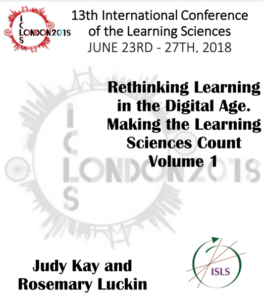
Three Research Directions for Affective Learning Technologies
ProceedingsTechnology design / integrationVirtual agents/avatars
Baylor, A. L. (2018). Three Research Directions for Affective Learning Technologies. In Kay, J. and Luckin, R. (Eds.) Rethinking Learning in the Digital Age: Making the Learning Sciences Count, 13rh International Conferences of the Learning Sciences (ICLS) 2018, Volume 3. London, UK: International Society of the Learning Sciences, pp. 1843-1846.
Publication year: 2018

Promoting motivation with virtual agents and avatars: role of visual presence and appearance
Journal articleProceedingsVirtual agents/avatars
Baylor, A. L. (2009). Promoting motivation with virtual agents and avatars: role of visual presence and appearance. Philosophical Transactions of the Royal Society B , 364, 3559-3565.
Publication year: 2009
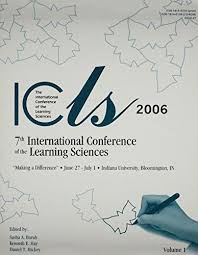
Interface agents to alleviate online frustration
ProceedingsVirtual agents/avatars
Baylor, A. L., & Rosenberg-Kima, R. B. (2006). Interface agents to alleviate online frustration. Proceedings of the 7th International Conference on Learning sciences, (pp.30-36), Bloomington, Indiana: ISLS.
Publication year: 2006
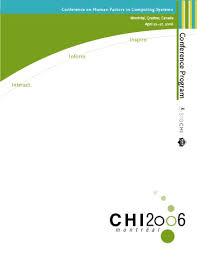
Interface Agents as Social Models: The Impact of Appearance on Females’ Attitude Toward Engineering
ProceedingsVirtual agents/avatars
Baylor, A. L., Rosenberg-Kima, R. B., & Plant, E. A. (2006). Interface Agents as Social Models: The Impact of Appearance on Females’ Attitude Toward Engineering. Proceedings of International Conference on Human Factors in Computing Systems (CHI 2006), Montreal, Canada. (pp. 526- 531), ACM Press.
Publication year: 2006

The Impact of Pedagogical Agent Image on Affective Outcomes
ProceedingsVirtual agents/avatars
Baylor, A. L. (2005). The Impact of Pedagogical Agent Image on Affective Outcomes. Proceedings of Workshop “Affective Interactions: The Computer in the Affective Loop” at the 10th International Conference on Intelligent User Interfaces, San Diego, California. (pp. 1-6), ACM Press.
Publication year: 2005
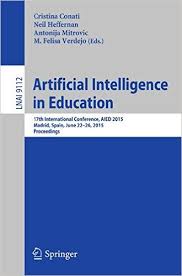
Adult Learner Perceptions of Affective Agents: Experimental data and phenomenological observations
ProceedingsVirtual agents/avatars
Warren, D., Shen E., Park, S., Baylor, A. L. & Perez, R. (2005). Adult Learner Perceptions of Affective Agents: Experimental data and phenomenological observations. In C-K. Looi, G. McCalla, B. Bredeweg & J. Breuker (Eds.), Artificial intelligence in education: Supporting learning through intelligent and socially informed technology (Vol. 125, pp. 944-946), IOS Press.
Publication year: 2005

The impact of frustration-mitigating messages delivered by an interface agent
ProceedingsVirtual agents/avatars
Baylor, A. L., Warren, D., Park, S., Shen E., & Perez, R. (2005) The impact of frustration-mitigating messages delivered by an interface agent. In C-K. Looi, G. McCalla, B. Bredeweg & J. Breuker (Eds.), Artificial intelligence in education: Supporting learning through intelligent and socially informed technology (Vol. 125, pp. 73-79), IOS Press.
Publication year: 2005

Pedagogical agents as social models for engineering: The influence of appearance on female choice
Engineering educationProceedingsVirtual agents/avatars
Baylor, A. L., & Plant, E. A. (2005). Pedagogical agents as social models for engineering: The influence of appearance on female choice. In C-K. Looi, G. McCalla, B. Bredeweg & J. Breuker (Eds.), Artificial intelligence in education: Supporting learning through intelligent and socially informed technology (Vol. 125, pp. 65-72), IOS Press.
Publication year: 2005
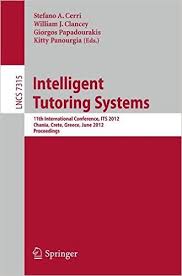
Supporting learners with math anxiety: The impact of pedagogical agent emotional and motivational support
ProceedingsVirtual agents/avatars
Baylor, A. L., Shen, E. & Warren, D. (2004). Supporting learners with math anxiety: The impact of pedagogical agent emotional and motivational support. Proceedings of Workshop on Social and Emotional Intelligence in Learning Environments at the International Conference on Intelligent Tutoring Systems (ITS), Maceio, Brazil. (pp. 6-12), Springer.
Publication year: 2004

Pedagogical Agent Design: The Impact of Agent Realism, Gender, Ethnicity, and Instructional Role
ProceedingsVirtual agents/avatars
Baylor, A. L. & Kim, Y. (2004). Pedagogical Agent Design: The Impact of Agent Realism, Gender, Ethnicity, and Instructional Role. In (Eds. J. Lester, et al) Lecture Notes in Computer Science: Intelligent Tutoring Systems, Volume 3220, (pp. 592-603) Berlin/Heidelberg: Springer.
Publication year: 2004
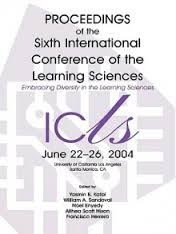
Designing pedagogical agents to address diversity in learning
ProceedingsVirtual agents/avatars
Baylor, A. L. (2004). Designing pedagogical agents to address diversity in learning. Proceedings of the 6th International Conference on Learning sciences, Los Angeles, California. (pp. 586-587), ISLS.
Publication year: 2004

The Impact of Image and Voice with Pedagogical Agents
ProceedingsVirtual agents/avatars
Kim, Y., Baylor, A. L. & Reed, G. (2003). The Impact of Image and Voice with Pedagogical Agents. In G. Richards (Ed.), Proceedings of World Conference on E-Learning in Corporate, Government, Healthcare, and Higher Education 2003, Phoenix, Arizona, (pp. 2237-2240), Chesapeake, VA: AACE.
Publication year: 2003

The Role of Gender and Ethnicity in Pedagogical Agent Perception
ProceedingsVirtual agents/avatars
Baylor, A. L., & Kim, Y. (2003). The Role of Gender and Ethnicity in Pedagogical Agent Perception. In G. Richards (Ed.), Proceedings of World Conference on E-Learning in Corporate, Government, Healthcare, and Higher Education 2003, Phoenix, Arizona. (pp. 1503-1506), Chesapeake, VA: AACE.
Publication year: 2003

Which Pedagogical Agent do Learners Choose? The Effects of Gender and Ethnicity
ProceedingsVirtual agents/avatars
Baylor, A. L., Shen, E., & Huang, X. (2003). Which Pedagogical Agent do Learners Choose? The Effects of Gender and Ethnicity. In G. Richards (Ed.), Proceedings of World Conference on ELearning in Corporate, Government, Healthcare, and Higher Education 2003, Phoenix, Arizona, (pp. 1507-1510), Chesapeake, VA: AACE.
Publication year: 2003

The pedagogical agent split-persona effect: When two agents are better than one
ProceedingsVirtual agents/avatars
Baylor, A. L. & Ebbers, S. (2003). The pedagogical agent split-persona effect: When two agents are better than one. Proceedings of World Conference on Educational Multimedia, Hypermedia and Telecommunications, Honolulu, Hawaii, (pp. 459-462). Norfolk, VA: AACE.
Publication year: 2003

Constructing agents for self-learning: Animated agents as expressive vehicles
ProceedingsVirtual agents/avatars
Gussak, D. & Baylor, A. L. (2003). Constructing agents for self-learning: Animated agents as expressive vehicles. Proceedings of World Conference on Educational Multimedia, Hypermedia and Telecommunications, Honolulu, Hawaii, (pp. 477-478). Norfolk, VA: AACE.
Publication year: 2003
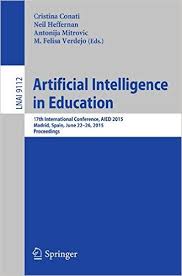
Evidence that multiple agents facilitate greater learning
ProceedingsVirtual agents/avatars
Baylor, A. L. & Ebbers, S. (2003). Evidence that multiple agents facilitate greater learning. In U. Hoppe, M.F. Verdejo, J. Kay (Eds.), Artificial Intelligence in Education: Shaping the Future of Learning Through Intelligent Technologies (pp.377-379): IOS Press.
Publication year: 2003
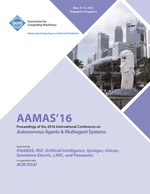
The split-persona effect with pedagogical agents
ProceedingsVirtual agents/avatars
Baylor, A. L. (2003). The split-persona effect with pedagogical agents. Proceedings of Workshop “Embodied Conversational Characters as Individuals” at the Autonomous Agents & Multi-Agent Systems (AAMAS), Melbourne, Australia.
Publication year: 2003
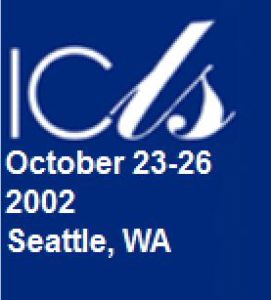
Pedagogical agents as scaffolds: The role of feedback timing, number of agents, and adaptive feedback
ProceedingsVirtual agents/avatars
Baylor, A. L. & Chang, S. (2002). Pedagogical agents as scaffolds: The role of feedback timing, number of agents, and adaptive feedback. Proceedings of 5th International Conference of the Learning Sciences, Seattle, WA, ISLS.
Publication year: 2002
